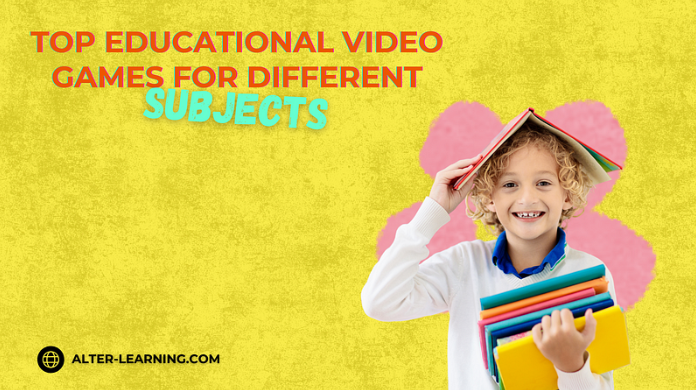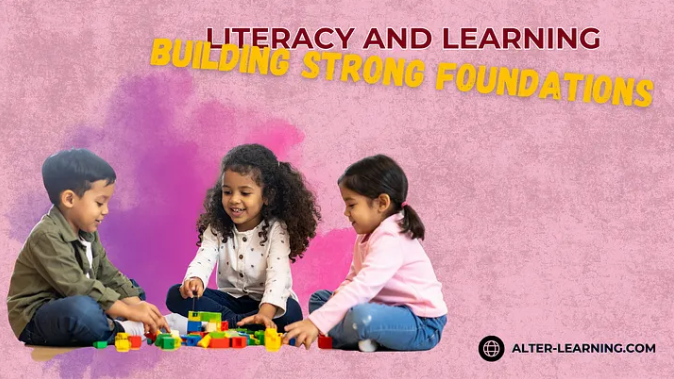Educational video games have come a long way from simple math drills and vocabulary flashcards. Today’s immersive platforms can bring science, history, music, and even emotional development to life—engaging students with interactive, hands-on experiences that connect directly to core learning objectives.
At Alter-Learning, that potential is at the heart of every design decision. By blending STEAM educational games, interactive simulations, and accessible technology, Alter-Learning offers tools that can support learning across a wide range of subjects.
Science and Environmental Awareness
For students curious about the natural world, interactive platforms can help make abstract concepts tangible. Through immersive ecosystems and engaging challenges, learners can explore topics like biology, energy transfer, and environmental stewardship.
Experiences that can support science learning include:
- Plant biology environments where students nurture diverse species and explore photosynthesis, ecological impact, and plant structures,
- Marine exploration games that simulate underwater ecosystems, food webs, and biodiversity,
- Resource management simulations that challenge players to consider energy use, conservation, and real-world sustainability.
These interactive science games for kids can spark curiosity while reinforcing observation skills, critical thinking, and ecological awareness.
Engineering and Physics in Action
STEAM concepts like energy, motion, and mechanics can be complex to grasp through textbooks alone. Interactive STEAM learning tools that incorporate engineering challenges for students may provide an alternative path—one where learners build, experiment, and apply concepts to solve practical problems.
Key features that can support engineering and physics education include:
- Puzzle-based environments where players solve mechanical challenges using principles like magnetism and energy transfer,
- VR math games that promote spatial reasoning and applied problem-solving,
- Interactive physics simulations that allow students to experiment with forces, motion, and energy in real time.
These experiences can help demystify technical concepts while building creativity, problem-solving, and resilience.
Music, Arts, and Creative Expression
STEAM isn’t only about science and math—it’s also about fostering creativity and artistic confidence. Interactive platforms that incorporate music, performance, and digital art creation tools can help students express themselves while reinforcing technical concepts like rhythm, pattern, and structure.
In immersive arts-focused experiences, learners may:
- Explore virtual music halls with different rooms dedicated to rhythm, melody, and harmony,
- Engage in solo or group performances that build musical confidence and collaboration,
- Experiment with real instrument mechanics and sound design,
- Connect musical exploration to broader STEAM concepts like math, pattern recognition, and technology integration.
These tools can support both creative development and cross-disciplinary learning.
History, Geography, and Cultural Understanding
Interactive history games can transform static timelines into living experiences. By exploring ancient cities, solving archaeological puzzles, and uncovering cultural connections, students can engage with history and geography in new, hands-on ways.
Educational features designed to support history and social studies include:
- Time-travel simulations where students explore ancient civilizations, analyze artifacts, and connect historical narratives to geography,
- Interactive excavation games that build spatial reasoning, historical thinking, and cultural awareness,
- Collaborative environments where students explore historical settings together and solve challenges as a team.
These immersive learning environments can help learners develop not just content knowledge, but also empathy and global perspective.
Emotional Growth and Life Skills
Education isn’t only academic. Social-emotional learning (SEL) and life skills are vital for students’ overall development. Immersive platforms can offer supportive, accessible environments where learners build confidence, emotional awareness, and essential life skills.
Features designed to support SEL may include:
- Personalized tools that help students track emotions and set personal goals,
- Engaging activities that reinforce mindfulness, confidence-building, and self-expression,
- Community spaces where learners can practice communication, empathy, and social interaction,
- Guided wellness challenges designed to promote resilience, growth mindset, and emotional regulation.
These experiences can help foster whole-child development, supporting students both inside and outside the classroom.
A Multi-Subject, Immersive Approach to Learning
From science to music, history to wellness, educational games have the potential to make learning more interactive, inclusive, and meaningful. The Alter-Learning approach brings together subject matter expertise, immersive design, and a commitment to accessibility—offering tools that can support a wide range of learners and educational goals.
When students explore, experiment, and collaborate through these interactive environments, they may not only master content—they can build confidence, curiosity, and critical thinking. For educators and families seeking a dynamic, student-centered approach, immersive educational games can help create more engaging classrooms, more empowered learners, and a more connected learning experience.
Follow Alter-Learning for more insights into immersive education, edtech success stories, and the future of learning. Want to explore how VR/AR could transform your school or learning platform? Let’s connect.




